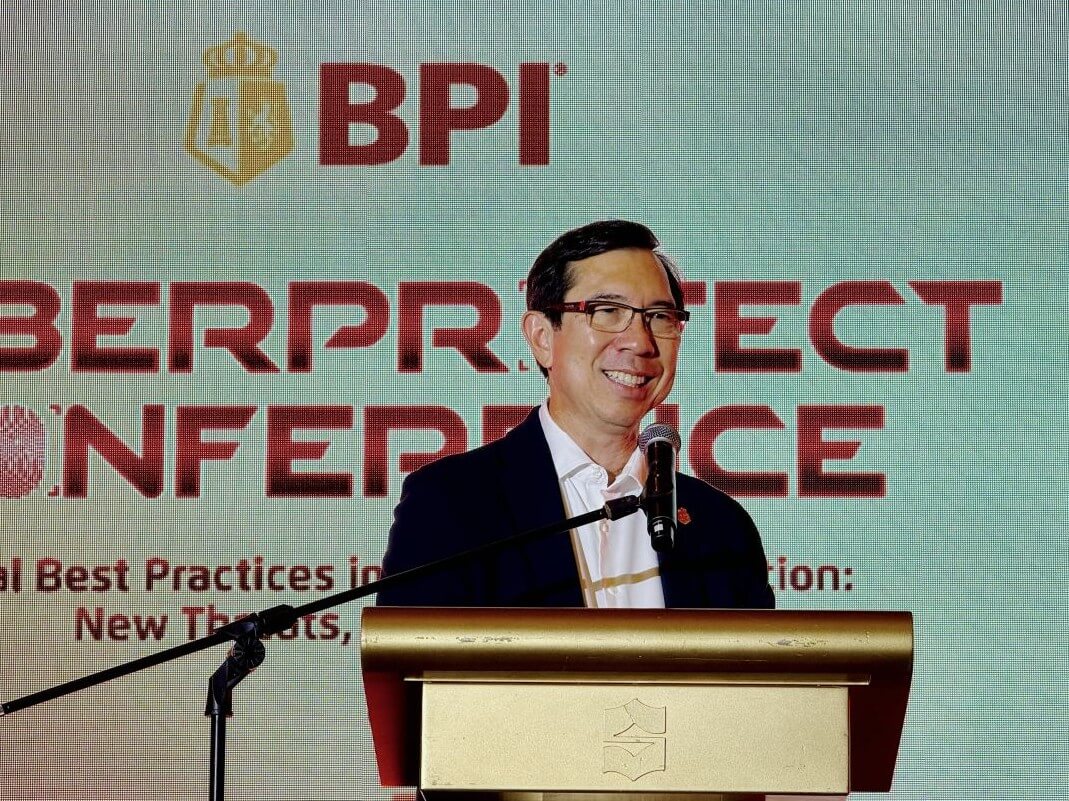

Hosted by Bank of the Philippine Islands (BPI), the conference held on July 30 bore the theme “Global Best Practices in Consumer Protection: New Threats, New Defenses.” It emphasized the need for cross-sector collaboration to protect Filipino consumers in an increasingly digitalized economy.
In a written message delivered during the event, President Ferdinand Marcos Jr. called on both public and private sectors to bolster efforts in securing the digital space.
Public-private partnerships for cyber resilience
“Through the strong partnership of the government, private sector, academe, civil society, and international stakeholders, we can generate and implement global best practices, policies, and programs that will reinforce trust in digital systems and guarantee our country’s cybersecurity resilience,” the President said.
BPI president and CEO Jose Teodoro “TG” Limcaoco echoed the president’s message, affirming the bank’s commitment to collaborative security efforts.
“At BPI, we do not take this responsibility lightly. We see ourselves as partners not only to our customers but to the nation,” Limcaoco said. “Together with the government, we aim to be at the forefront of this ongoing battle against cybercrime and digital risks.”
AFASA: A landmark law for digital protection
The conference featured sessions on global frameworks for fraud prevention, evolving regulatory challenges, and innovations in digital security. A major focus was the implementation of Republic Act No. 12010 or the Anti-Financial Account Scamming Act (AFASA), recently signed into law.
Bangko Sentral ng Pilipinas (BSP) Deputy Governor Elmore Capule highlighted the role of AFASA in countering schemes such as money muling and online deception tactics. The law criminalizes fraudulent activity involving digital financial platforms to safeguard consumer confidence.
“Together with our partners in government and the private sector, we are building a more robust and responsive framework to protect financial consumers and preserve the integrity of our systems,” Capule said.
Empowering consumers through education
BPI’s enterprise information security officer and data protection officer Jon Paz also underscored the importance of consumer empowerment through education.
“Protecting our customers goes beyond securing systems—it means empowering them with the knowledge they need to stay safe online,” Paz noted.
Sharp rise in cybercrime cases
Data from the Cybercrime Investigation and Coordinating Center (CICC) showed 10,004 cybercrime complaints filed in 2024, a sharp increase from 3,317 cases in 2023. Consumer fraud comprised 35 percent of all reports, with estimated losses reaching nearly PHP198 million.
The conference served not just as a knowledge-sharing event but as a rallying call for continuous cooperation across sectors. BPI reaffirmed its leadership role in driving dialogue and innovation to secure a safer, more inclusive digital future for Filipinos. —Ed: Corrie S. Narisma